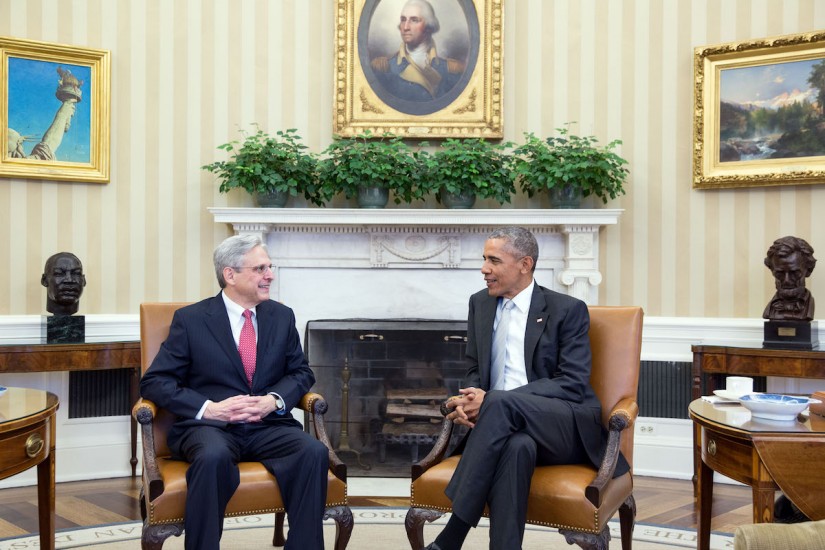Battles over a president’s late-term judicial nominations are nearly as old as the Constitution itself. Thomas Jefferson’s successful fight against John Adams’ “midnight judges,” appointees rushed through in Adams’ last days in office in 1801, led to the famed Supreme Court case Marbury vs. Madison.
While the case is well known for establishing the court’s power of judicial review, its facts are less remembered. Just before Adams left office, Congress created dozens of new judicial positions. Adams quickly appointed men to fill them. When Jefferson took office, he refused to acknowledge some of Adams’ judicial appointments. William Marbury, an Adams appointee for District of Columbia justice of the peace, sued to receive his commission anyway, but lost the case. Jefferson later convinced Congress to abolish the new judgeships.
The next big nomination battle, also after an election, involved Adams’ son. In December 1828, two weeks after Andrew Jackson defeated incumbent John Quincy Adams in the Electoral College, Adams nominated Kentucky lawyer John Crittenden to replace Justice Robert Trimble, who had died that August. The Senate, voting largely along partisan lines in February 1829, postponed Crittenden’s nomination, as well as two of Adams’ three December nominations for federal district judgeships. That the Senate was saving the seat for Jackson to fill was lost on no one. “What a set of corrupt scoundrels,” Kentucky congressman John Chambers wrote to Crittenden, “and what an infernal precedent they are about to establish.”
In 1844, the Senate went a step further, blocking President John Tyler from filling a Supreme Court seat before an election. Tyler, the first unelected president, ascended from the vice presidency in 1841 after William Henry Harrison’s death. His fights with his fellow Whigs started quickly, and in 1842, they threw him out of the party. By 1844, when the deaths of two justices gave Tyler two Supreme Court seats to fill, the Senate was in no mood to accept his nominees.
Stubbornly, Tyler nominated his brusque, short-tempered Treasury secretary, John C. Spencer, for the first open court seat in January 1844. The Senate rejected Spencer, 26-21, after a closed debate, with most Whigs voting against him. Spencer’s personality and politics both played a part in his defeat; Whigs felt that his decision to accept a spot in Tyler’s cabinet was traitorous. But historians think politics played a larger role in what happened next.
